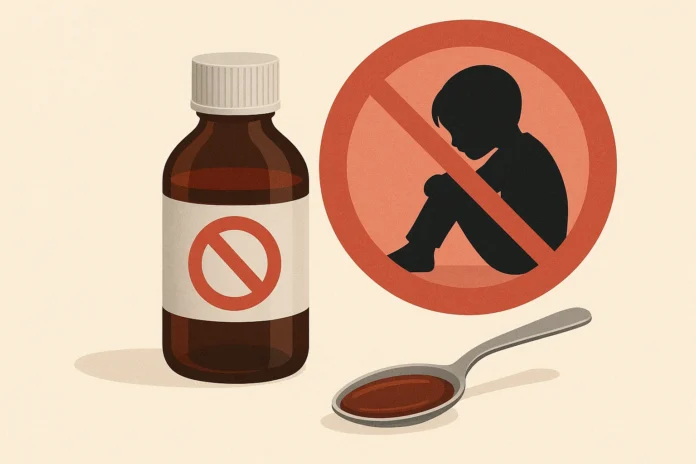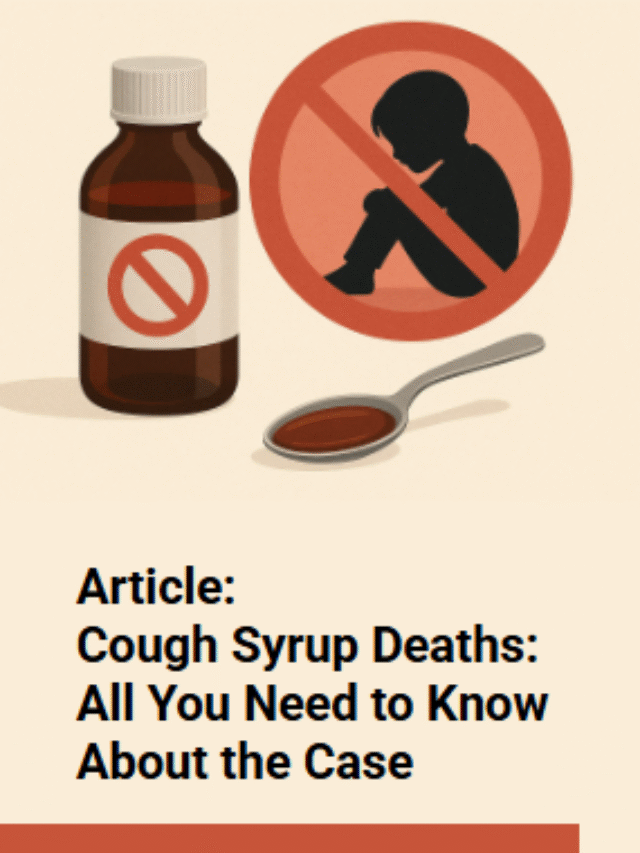A nationwide health crisis unfolds as ‘Coldrif’ syrup, tainted with Diethylene Glycol (DEG), exposes glaring failures in India’s drug safety regulations.
Cough Syrup Deaths: All You Need to Know About the Case
The death of over a dozen children across multiple Indian states, including Madhya Pradesh and Rajasthan, has brought to light a horrifying drug contamination scandal. The tragedy, linked to a widely prescribed cough syrup, has exposed deep-seated vulnerabilities in the country’s drug regulatory framework and triggered immediate legal and administrative action across the nation.
The Heart of the Crisis: Diethylene Glycol (DEG)
The primary culprit behind these tragic deaths is the presence of Diethylene Glycol (DEG), a highly toxic industrial solvent, found in the contaminated cough syrup. Lab reports revealed alarming concentrations of DEG—in some cases, nearly 500 times the minuscule permissible limit (which is typically around 0.1%). DEG is commonly used in antifreeze and brake fluids and is strictly prohibited from use in pharmaceuticals due to its lethal effects.
When ingested, DEG is metabolised into toxic compounds that swiftly attack the body, leading to severe symptoms like abdominal pain, vomiting, and, critically, acute kidney failure. Young children are particularly vulnerable, with even small doses proving fatal.
The Tainted Product and the Manufacturer
The contaminated medicine was identified as Coldrif cough syrup, manufactured by the Tamil Nadu-based Sresan Pharma. Following the reported deaths in Madhya Pradesh’s Chhindwara and Vidisha districts and parts of Rajasthan, the Central Drugs Standard Control Organisation (CDSCO) initiated a probe. Samples collected confirmed that specific batches of Coldrif syrup contained toxic levels of DEG.
This contamination is often linked to manufacturers substituting approved pharmaceutical-grade solvents (like Glycerine or Propylene Glycol) with cheaper, industrial-grade DEG, either due to cost-cutting or poor oversight in the supply chain.








